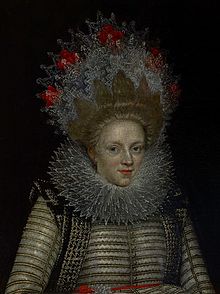EN2F1/EN3F1 Early Modern Drama
UPDATED FOR 2024-25 (running term 1)
Convenor: Professor Teresa Grant, FAB 5.25 t.grant@warwick.ac.uk
Teaching methods 1 x 1 hr hour lecture and 1 x 1 hr seminar weekly (usually back to back).
Assessment methods:
Intermediate Year: The module is assessed 30% by a 1000 word response to an extract from the set plays (like Section A of the past exam papers posted on the right of this page) and 70% by a 2000 word essay.
Final Year: The module is assessed 30% by a 1500 word response to an extract from the set plays (like Section A of the past exam papers posted on the right of this page) and 70% by a 3000 word essay.
At the end of reading week, students will be offered the opportunity to hand in a formative extract essay for marking.
EN2/3F1 Early Modern Drama: Home and Away - (15 CATS) – term 1 only
Expect murder, magic and mayhem, and lots of risqué double entendres. In the golden age of English theatre, playwrights other than Shakespeare produced plays which dealt with some of the same themes but in a wide variety of ways. We’ll pay particular attention to the playing conditions of the time which were affected both by the physical resources of the stage and the political context into which these works intervened. We will also take note of early modern literary criticism to discover how playwrights interacted with these ideas in their work – what did they think they were doing? As we read some of the most famous plays of the period, we will develop an understanding of its major dramatic trends, the plays’ significance in relation to Shakespeare and to their classical precursors and the ways in which they reflect the political, religious and social concerns of their time.
This term 1 module can be paired with England and the Islamic World, 1550-1660 to make a coherent 30 CATS two-term option which deals with early modern literature in context. The choice of plays on the module this year, subtitled 'Home and Away', is designed to interrogate early modern views of Englishness and Britishness and the foreign 'other' (including stage Jews, Spaniards, Hollanders and Scythians, to name but a few). The term 2 special option on England and the Islamic World then provides a detailed case study for some of the contexts first encountered on Early Modern Drama.
Follow the links below for extract videos of modern productions, to get a sense of the plays and their era.
Outline Syllabus
Week 1, Medieval England: Robert Green, Friar Bacon and Friar Bungay (c.1589)
Week 2, Central Asia: Christopher Marlowe, Tamburlaine the Great Part 1 Link opens in a new window(pr. 1590)
Week 3, The Mediterranean: Christopher Marlowe, The Jew of Malta (1592)
Week 4, England: Anon., Arden of Feversham (1592)
Week 5, London: Thomas Dekker, The Shoemaker's Holiday (1599)
Week 6, Reading Week
Week 7, Ancient Judea: Elizabeth Cary, The Tragedy of Mariam (c. 1603-8)
Week 8, Italy: Thomas Middleton, The Revenger's Tragedy (1606)
Week 9, London: Francis Beaumont, The Knight of the Burning Pestle (1607)
Week 10, London: Ben Jonson, The AlchemistLink opens in a new window (1610)
The coursebook will be English Renaissance Drama: A Norton Anthology, eds Bevington, Engle, Maus and Rasmussen (New York and London, 2002). All the plays are in this edition.





